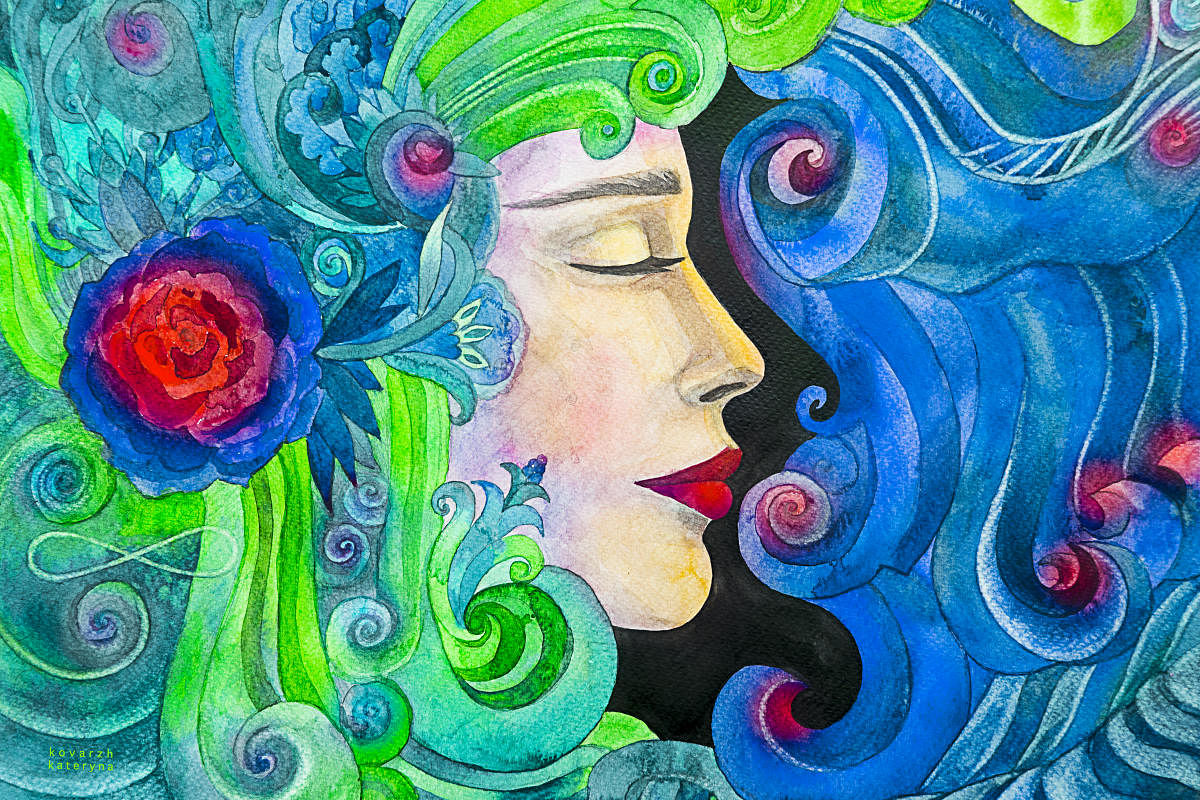
There is probably a good chance that a friend, family member, colleague, or at least a WhatsApp forward has advised you to be ‘kind to yourself ‘or to ‘love yourself’ in the recent past. Run a search for ‘#selflove’ on popular social media platforms to see how the hashtag dominates conversations. There are more than 80 million ‘#selflove’ tagged posts on Instagram alone. Google, too, throws up pages and pages devoted to ‘self-love’, with tips and tricks on ‘how to do it’ headlining search results. Additionally, there are plenty of self-help books, and much spirituality-based literature on the subject as well. ’Self-love’ is also an industry in its own right with blogs and advice columns vying with brands — that emphasise the ‘self-care’ link to ‘self-love’ — to cash in on the boom.
How to understand this phenomenon, which is perhaps a familiar one even to those who don’t live a big part of their lives online? According to psychologists, the term is widely misunderstood in our current cultural setting. Namrata Khetan, a Mumbai-based counselling psychologist, felt its current popularity stemmed from a “superficial idea” that borrows much from the advice dispensed by the ‘pop mental health culture’ on the Internet.
“[People say] I took a day off, did my favourite things, went out for coffee and booked a spa — while these [activities] may have been a conscious effort to prioritise a day, to do things that make you feel good or nice, they are temporary,” she said.
In fact, such ideas of self-love can be misleading as a response to the many challenges, internal and external, that our lives are full of. “Untrained professionals and social media influencers talk about self-love as an easy solution to all of life’s problems,” said Sohini Bhattacharjee, who is training to be a creative arts therapist in Kolkata. "Whatever definition of self-love people may want to subscribe to in a society adapting to the global Internet culture and multiple other changes, it should necessarily have a component of appreciation and compassion for oneself in it,” she said.
Namrata saw self-love as ideally encompassing full self-acceptance, with all of one’s “strengths and challenges”, and pertaining not just to how one treats oneself, but also becoming aware of one’s thoughts and feelings about oneself. According to her, “being assertive, being comfortable drawing boundaries, prioritising your needs, pursuing your interests and goals, and holding yourself accountable are a few indicators of the manifestation of self-love.”
The quick-fix temptation
The self-love moment we are witnessing now exists within a larger mental health context in our societies. Statistics show an increasing number of people struggling with mental health conditions across the world. About one in seven Indians suffered from mental disorders in 2017, according to a study published by The Lancet Psychiatry in 2019. Children and adolescents are impacted in a big way. Two of the most common mental health conditions affecting people everywhere are depression and anxiety.
Many struggle with low self-esteem, negative self-talk, conflict, and other difficult emotions connected with how we live, work, and love right now. To cite an everyday example of this, many people link their entire identity and self-worth to work and professional accomplishments, especially in urban environments. Any change at work or a career disruption can extract a big price in terms of mental and physical well-being for them. I speak from the personal experience of having gone through such a situation.
Given this reality about our current ways of living, it’s possible that a significant number of people are turning to popular avenues such as social media for answers and finding cues to indulge in feel-good activities and momentary relief through hacks offered in the name of ‘self-love’ and allied concepts.
In sum, those of us wanting to meet the difficulties of normal life — what the psychotherapist and writer, Mark Epstein, has termed the “trauma of everyday life” — perhaps need to look beyond the casual ways in which ‘self-love’ is used and go towards an in-depth engagement with the term, which also implies a deeper engagement with ourselves.
Committing to oneself
“Self-love is a journey. It’s not the destination,” Sohini wrote to me before signing off on the email response to my questions. She said for the past couple of months she had been reflecting on the concept deeply while going through her own journey of healing. “People who grow up in a functional environment have a strong sense of self. But for many others, it’s a process of self-discovery. You have to acknowledge who you are, choose yourself over the whims of others, and do right by yourself first,” she said.
I asked why she thought of self-love as a “journey”. “Self-love is a process. I can’t wake up one morning and think I love myself now. It’s self-work. You have to keep at it,” she said.
As I began to hear the stories of others who had taken ‘self-love’ seriously, I realised that the idea of the ‘journey' was a recurrent motif. Sohini had pointed to self-acknowledgment as one of the components of this journey. What were the others?
For Sowmya Swaminathan, a 28-year-old educator and writer from Chennai, ‘self-love’ felt like a hard idea to embrace outright, but ‘self-acceptance’ was something she could try for. Talking about how self-acceptance has helped her, she cited the example of her attempts to come to terms with her father’s death last year. After his passing, she had to grapple with the fact that while she had had a wonderful relationship with him, it was definitely not perfect.
“I know that there are parts of that relationship that could have been better, where I could have been better, he could have been better…but obviously, it’s not possible to succeed always, or be the best version of yourself…. It took me many months of therapy and journaling and reflective work to… just accept that what I had was special, even if it was flawed and imperfect and somewhat painful,” she said.
Going through this process has helped her heal better by reducing the guilt and regret she feels, though the longing for him is still there. “I was giving [myself] permission to accept all of these things and also to forgive myself and to forgive him for the things that we may have said, or shared, or done.”
Namrata too saw the acceptance of mistakes, reflection, and forgiving oneself as being key to self-love. According to her, operating from a place like this depends on factors surrounding one’s childhood, parenting and communication patterns, and the ability to express oneself while growing up. “To be able to truly become self-aware and accept oneself, and to love oneself fully, requires conscious effort and work,” she noted.
Ankita Anand, a 36-year-old independent journalist from Delhi, agreed. She felt that if one invested time and effort in activities like journaling or even in reading deeply, then self-accountability and care for oneself could take root. “More books have changed me than anything else,” she said, speaking of how, as a young girl, A Little Princess by Frances Hodgson Burnett had imparted important lessons in self-dignity, and the Nancy Drew series had supplied the picture of a smart woman, the eponymous heroine who solved mysteries and whose life and work was not interrupted when she had a romantic break-up.
“Growing up in the mid-1980s and the 1990s, often the question before one was who do I have as my role model,” she said, mentioning the influence of the Doordarshan TV series Udaan on her. The series featured a woman in the lead role of a perfect Indian Police Service (IPS) officer. Ankita suggested to me that sometimes self-love could simply take the form of self-affirmation.
Ankita’s journey, which took her from the small towns of Jharkhand and Bihar to India’s capital, has also been one of becoming calmer and gentler with herself, especially when she is occupied with big tasks. She said that if, for instance, she found herself avoiding doing something or was feeling under-confident, she had begun asking herself what would make her feel more confident. “I am now able to appreciate myself enough to see that I may be going out of my comfort zone to do difficult investigative stories that need collaboration across countries,” she said.
The journey home
Although it can be approached consciously, ‘self-love’ clearly does not always announce itself with that phrase alone. I, for one, came to a supportive way of relating to myself through a rehabilitating encounter with unconditional love as a grown-up. This led me to the recognition in time of a capacity for radical kindness towards myself. I could direct this kindness towards me when I was undermining myself or when I had erred, but also extend it to others in the form of understanding for them and their predicaments.
That is not to say that it is a clockwork mechanism. It is a stop-and-start process. I’m too close to the surface of my 'self' much of the time, but if I allow myself to pause, I can become aware of its presence in me, discern its workings in our lives at times, and rarely even come upon the knowing that it contains us all within itself.
The handful of people in this article, and the countless others who are not directly featured here, are connected by an unceasing quest. We make this quest with the help of our small, fragile selves in an attempt, whether conscious or not, to find the depths of a love that is essential and real. This too — the legacy of our messy humanness — is worthy of acceptance and love because it is through making this journey that we discover our boundaries can blur for the right reasons too.
The author is a Bengaluru-based writer and journalist. She tweets @homernods
